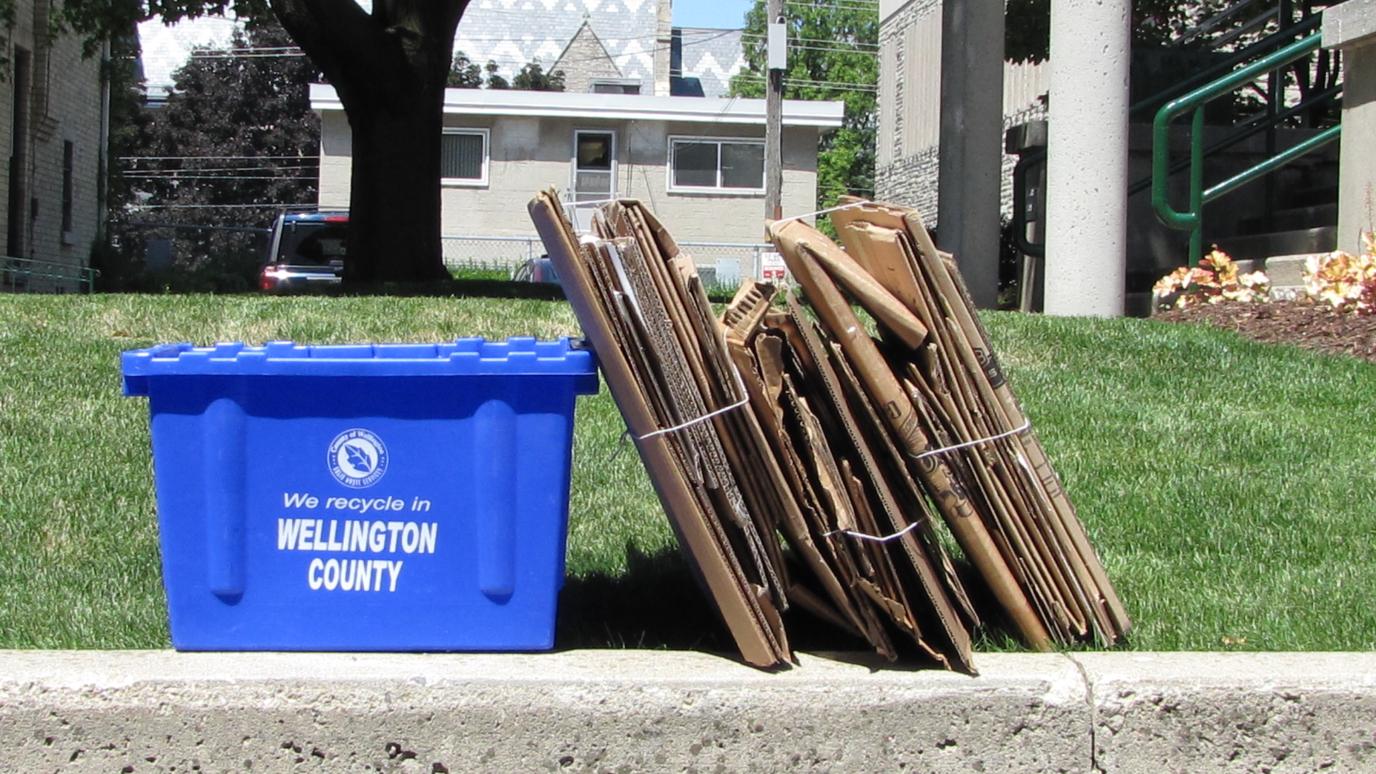WELLINGTON COUNTY – As of July 1, the local Blue Box Program will no longer be the county’s responsibility.
The program aims to divert waste collected by municipalities from landfill and save natural resources by limiting the amount of raw materials needed to produce new products.
Sine 2023, municipalities across Ontario have been transitioning to a full-producer responsibility system – meaning the producers (businesses) that supply packaging and paper are financially responsible and accountable for those materials over their full life cycle.
“Today those producers are covering half the cost of the county’s cost to provide recycling services but as of July 1 that is transitioning to them providing the full cost,” county manager of solid waste services Das Soligo told the Advertiser.
“It’s going to result in about $2 million of savings to the county’s operating budget every year.”
The full-producer responsibility system is intended to:
- promote waste diversion;
- align costs of managing products and packaging to save taxpayers money; and
- give producers incentive to redesign products and make them easier to recycle.
The producers will take responsibility for over 400 residential Blue Box programs in Ontario by Dec. 31.
“From a resident’s perspective, very little is going to change,” Soligo said.
“Essentially they are still going to send out their materials in the same bins on the same day.”
The only change for residents will be the number they call for recycling issues or inquiries.
“It’s not to say that there won’t be more significant changes down the road,” Soligo stated.
Those changes remain unclear as the county will no longer have any influence in what the residential recycling program looks like.
Programs across Ontario will be in the hands of Circular Materials, a national not-for-profit producer responsibility organization based in Toronto.
“Their (Circular Materials) mandate during this transition period from 2023 through 2025 was to provide a seamless transition for residents,” said Soligo.
He noted residents are being taken care of under the “new model,” but businesses are not.
“Part of this whole change to producer responsibility meant that businesses are no longer provided recycling services,” he explained.
Because producers are only funding the residential portion of county’s cost, they had no obligation to provide recycling services to businesses.
County council decided to provide recycling services to 14 downtown areas across the county, including:
- Elora;
- Fergus;
- Mount Forest;
- Arthur;
- Clifford;
- Harriston;
- Palmerston;
- Moorefield;
- Drayton;
- Hillsburgh;
- Erin;
- Rockwood;
- Aberfoyle; and
- Morriston.
Additionally, businesses in and outside of the identified downtown areas may opt to register for a fee exemption card for blue box recyclables at county waste facilities.
“Businesses will still be able to recycle in Wellington County at no cost, but it’s just going to look a little bit different,” Soligo said.
If a business resides in one of the 14 locations, they will have the opportunity to register to receive collection services by roadside.
If they are outside of the areas listed, businesses can register to receive the exemption card which allows them to drop off recycling at a county waste facility at no cost.
A registration form for collection and the card can be found on the county’s website.
For more information visit wellington.ca/bbtransition.



